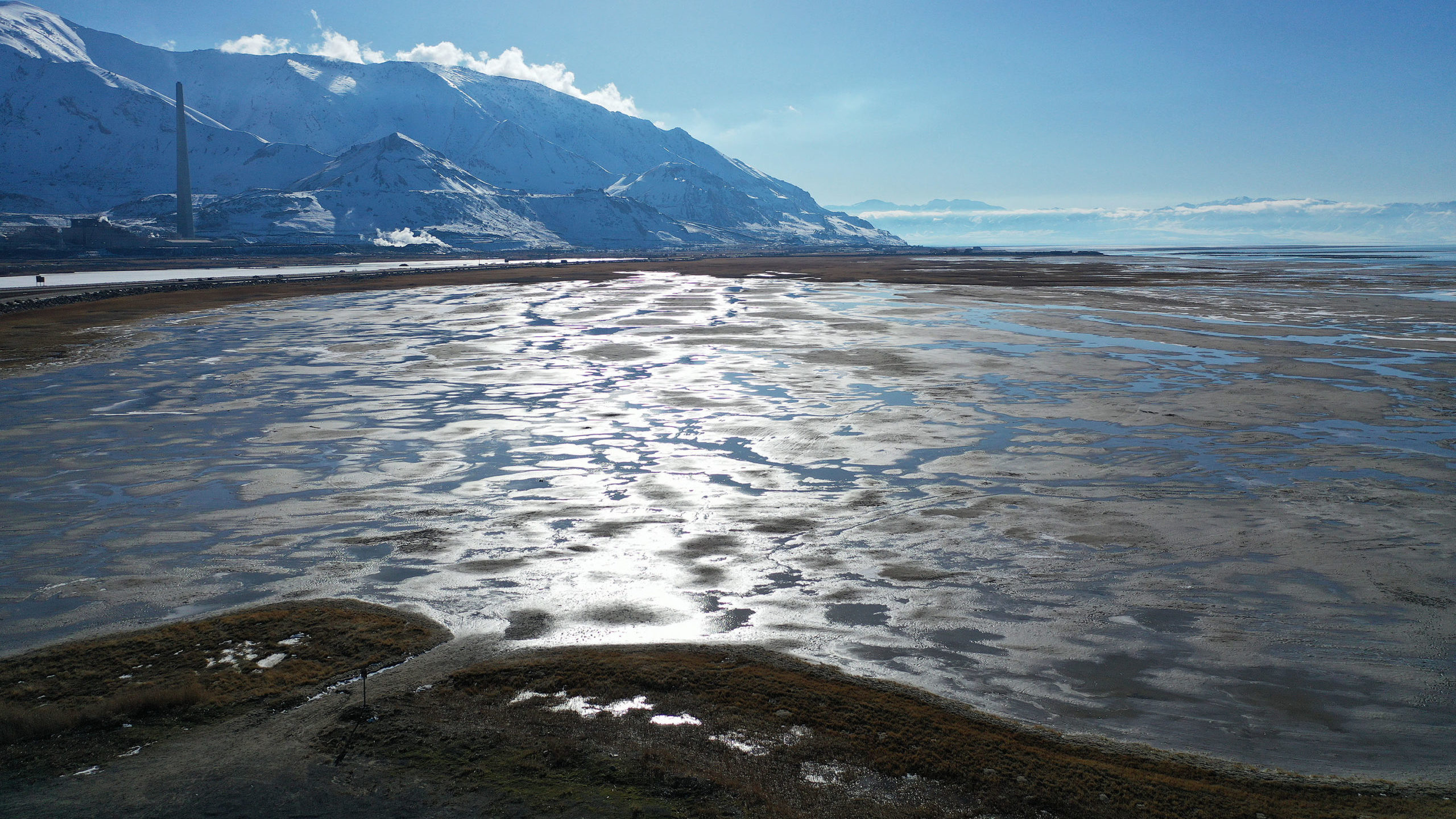Utah Legislature passes massive bill aimed at helping Great Salt Lake
Mar 1, 2024, 1:00 PM | Updated: Mar 4, 2024, 7:09 am

I-80 near the Great Salt Lake on Feb. 7, 2023. (Jeffrey D. Allred/Deseret News)
(Jeffrey D. Allred/Deseret News)
SALT LAKE CITY — The Utah House and Senate have signed off on a bill that takes numerous steps to help preserve the Great Salt Lake.
“This will probably be one of the most impactful and most important bills that we pass ever in regards to the Great Salt Lake,” said Utah House Speaker Mike Schultz on the House floor in February.
HB 453, sponsored by Rep. Casey Snider, R-Paradise, sets limits on mineral extraction companies that operate on Great Salt Lake. It would also update how much they have to pay the state via severance tax.
The Great Salt Lake is public land the state manages for the people in it. Since the companies take from a public resource, they pay the state a cut of their earnings.
In a House floor presentation in February, Snider said these companies have unlimited access to the lake’s water under the current law.
“Every drop is available for depletion and appropriation for mineral extraction,” Snider said.
This bill subjects the companies to the same rules as every other water user in Great Salt Lake Basin.
Setting limits without harming the industry
According to the Utah Department of Natural Resources, these companies use about 8% of the lake’s water every year.
These companies, such as U.S. Magnesium, Compass Minerals and Morton Salt, harvest some of the most precious minerals in the world, and many people use in their daily lives.
DNR told KSL NewsRadio depending on the year, they contribute between $9 million -$12 million annually to the state economy.
Schultz said the point of this bill was never to put them out of business. Instead, it aims to find a balance between saving the lake and protecting their industry.
The bill got pushback from some of the companies when it was first presented early in the General Legislative Session, but lawmakers have since added something that could help them for helping the lake.
In the current substitute version of the bill, the companies could get a major tax break if they take steps to save water.
If they work without evaporating any water, their 7.8% severance tax would plummet to 2.6%. This could save them thousands if not millions of dollars.
Times have changed quite a bit when it comes to Great Salt Lake. Snider said years ago, the water in the lake was considered wasted. Today, this is just the latest in a slew of actions the state, lawmakers, water managers and others have taken to save the lake from ecological collapse.
“It is important that we take a step now and look to the future, rather than continue to do things as they have always been done,” Snider said.
The bill is now on its way to the governor’s desk.













